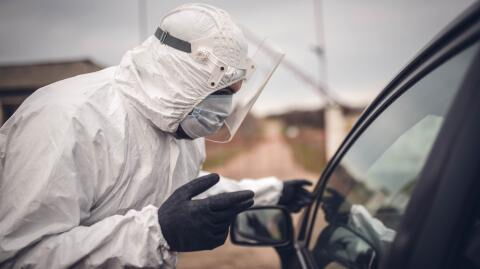The Kent COVID variant is on the rise. It is so contagious that even dogs and cats can become infected with the pathogen.
Discover our latest podcast
For example, cats and dogs are increasingly being admitted to a veterinary hospital with myocarditis caused by B117. Up until now, infections in pets have been asymptomatic.
Pets can fall ill with the new coronavirus variant
According to a study by British veterinarians, the British coronavirus variant B117 could possibly cause illness in dogs and cats more often than the original incarnation of the pathogen.
Due to a conspicuous increase in illnesses in pets, the need for an investigation became too urgent to ignore.
According to the report, a veterinary hospital near London was suddenly admitting significantly more cats and dogs with heart muscle inflammation (myocarditis).
There, the proportion of pets with heart muscle inflammation rose from 1.4 percent in December to 12.8 percent in February. The local veterinarians also noticed another conspicuous feature.
In many cases, the owners had been diagnosed with the COVID-19 disease three to six weeks earlier. That is why doctors finally tested some animals for the virus with PCR tests.
New variant can lead to heart muscle inflammation
With the help of the PCR tests, infection with B117 was then detected in three of the animals examined. In three others, antibodies against the virus were detected in the blood.
This means that the pets must have already been infected. According to the study authors, these are the first laboratory-proven infections of B117 in cats and dogs.
The authors conclude that B117 brings about a different clinical picture in domestic animals than the original variant. The sudden occurrence of myocarditis without prior signs of a cold is new.
Although COVID-19 infections had been detected in cats and dogs before this mutation, they usually caused no or only mild cold symptoms.
Caution when handling pets
Accordingly, and just as with the older variants, the possibility of cats and dogs contracting this mutation from their owners cannot be ruled out.
If you are sure that you are infected, you should also be careful when handling your pet. However, please do not start thinking about disinfecting your pets.
The reverse case, i.e. the transmission of the virus from domestic animals to humans, on the other hand, is still considered unlikely.















